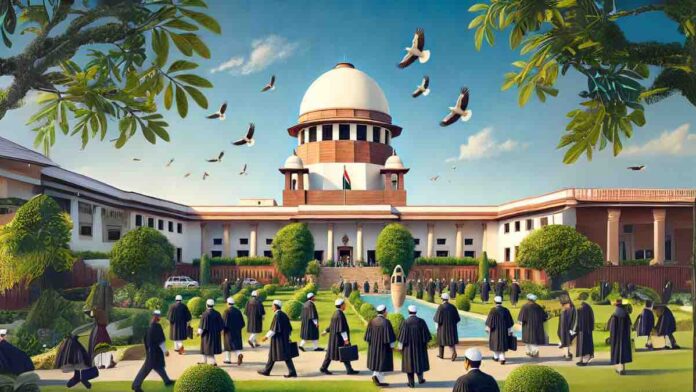In a pivotal judgment delivered on January 2, 2025, the Supreme Court of India quashed the criminal proceedings against B.N. John, reiterating a crucial procedural requirement under the Code of Criminal Procedure (CrPC). The bench, comprising Justice N. Kotiswar Singh and Justice B.V. Nagarathna, underscored that complaints under Section 195 of the CrPC must be
To Read More Please Subscribe to VIP Membership for Unlimited Access to All the Articles, Download Available Copies of Judgments/Order, Acess to Central/State Bare Acts, Advertisement Free Content, Access to More than 4000 Legal Drafts( Readymade Editable Formats of Suits, Petitions, Writs, Legal Notices, Divorce Petitions, 138 Notices, Bail Applications etc.) in Hindi and English.




